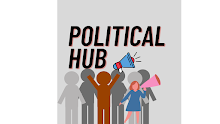Tulsi Gabbard's Claims of Shadow Banning on Instagram Raise Concerns Over Free Speech and Tech Influence
 |
| Photo credit: Gage Skidmore/CC BY-SA 2.0, via Flickr |
Former Congresswoman from Hawaii, Tulsi Gabbard, has recently taken to social media to express her concerns about being shadow banned on Meta's Instagram platform. Shadow banning, a practice where a user's content is made less visible to others without their knowledge, has ignited debates around free speech, the power of tech companies, and the influence of mainstream media.
Gabbard's allegations come in the form of screenshots, showcasing warning messages that appear when users mention her in their posts. These warnings suggest that Gabbard's account has "repeatedly posted false information," yet fail to provide specific instances or evidence of such "misinformation." This situation has led her to criticize what she calls an "authoritarian trend," raising the question of whether influential voices are being suppressed under the guise of combating misinformation.
The former Congresswoman's concerns tap into broader anxieties about the relationship between political leaders, traditional power structures, and technology giants. Gabbard suggests that an alignment between the "permanent Washington elite," intelligence agencies, mainstream media, and Big Tech could lead to an environment where dissenting voices are stifled. This raises important questions about the role of tech companies in shaping public discourse and potentially influencing democratic processes.
The issue of shadow banning is not new, with various platforms and individuals having reported instances of reduced visibility or limited engagement on their content.
Critics argue that such practices can lead to a skewed representation of public opinion, favoring mainstream narratives and suppressing alternative viewpoints. Advocates for free speech emphasize the importance of allowing diverse voices to be heard, even if their opinions differ from the status quo.
Gabbard's case highlights the challenges posed by the growing influence of technology companies in moderating online content. As these platforms strive to combat the spread of misinformation and disinformation, the methods they employ can inadvertently impact genuine discussions and hinder democratic discourse. The lack of transparency in how content moderation decisions are made can fuel suspicions about potential biases and selective enforcement of rules.
This situation also brings attention to the responsibility of political leaders and citizens to critically examine the role of technology in shaping public conversations. While combating misinformation is a legitimate concern, it's crucial to ensure that these efforts do not infringe upon the fundamental right to express differing opinions. Striking a balance between responsible content moderation and safeguarding free speech is a complex challenge that requires ongoing dialogue and collaboration among tech companies, policymakers, and the public.
In conclusion, Tulsi Gabbard's claims of being shadow-banned on Instagram underscore the intricate interplay between technology, politics, and free speech. As social media platforms continue to evolve and exert significant influence over public discourse, it becomes imperative to address concerns related to content moderation practices, transparency, and the potential suppression of diverse voices. A nuanced approach that respects both the need to curb misinformation and the principles of open dialogue is essential to preserving a healthy and vibrant democratic discourse in the digital age.

Comments
Post a Comment
If You have any doubt, please let me know.